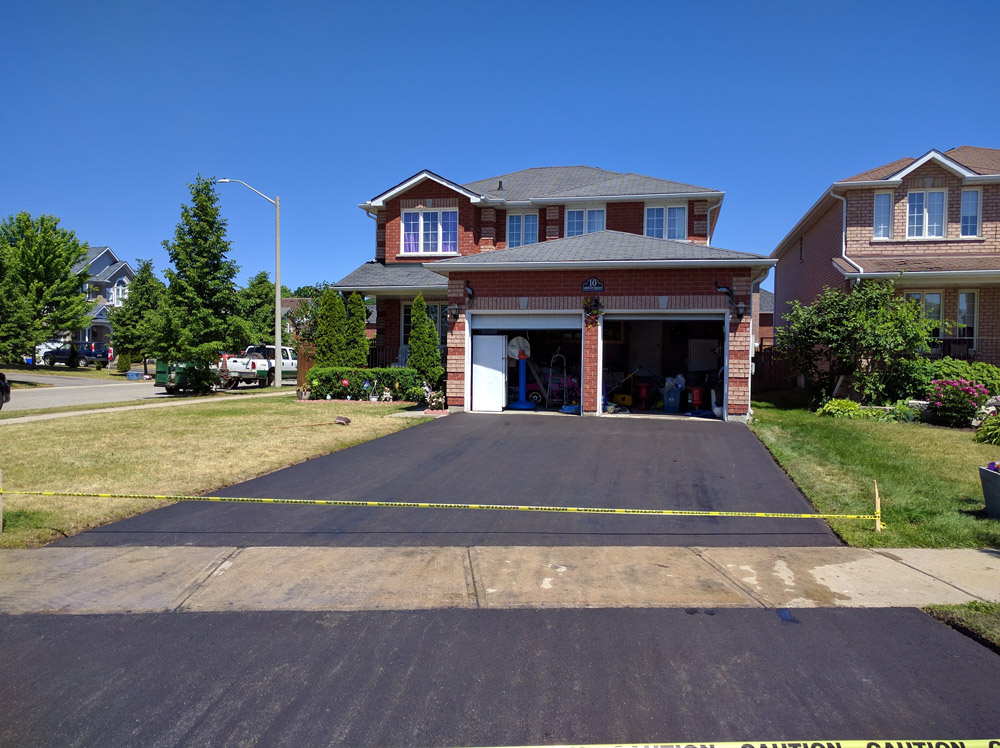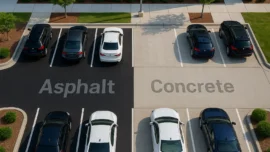
Cracks & Potholes? When to Repair vs. Replace Your Asphalt Driveway
A well-maintained asphalt driveway enhances curb appeal and ensures long-term durability. However, exposure to weather, traffic, and aging can cause cracks and potholes to develop. The question many homeowners face is: should you repair the damage or invest in a complete replacement? Understanding the key differences can help you make an informed decision on your asphalt driveway repair.
Signs You Should Repair Your Asphalt Driveway
1. Hairline or Surface Cracks
If your driveway has minor cracks (less than a quarter-inch wide), they can typically be repaired using asphalt crack fillers or sealants. Prompt repairs prevent water infiltration, which can lead to further deterioration.
2. Small Potholes
Potholes that are less than a few inches deep can be patched with asphalt patching compounds. Regular asphalt driveway maintenance helps prevent these issues from worsening.
3. Fading or Minor Wear & Tear
Over time, UV rays and weather conditions can cause asphalt to fade. If your driveway still has a solid foundation but looks worn, sealcoating can restore its appearance and protect it from further damage.
4. Isolated Damage
If the damage is confined to a small area and the rest of the driveway is in good condition, repairing or resurfacing is the best option. Asphalt resurfacing involves applying a new layer of asphalt over the existing pavement, giving it a fresh look and improved durability.
Signs You Need to Replace Your Asphalt Driveway
1. Deep & Widespread Cracks
If your driveway has alligator cracks (a pattern of interconnected cracks resembling reptile skin), it indicates structural failure. In such cases, asphalt driveway replacement is the best long-term solution.
2. Multiple or Large Potholes
Frequent pothole repairs may be a temporary fix, but if they keep reappearing, it means the foundation is compromised. A full driveway replacement ensures stability and longevity.
3. Drainage Issues
If water pools on your driveway instead of draining away, it can weaken the asphalt over time. Poor drainage is often a sign that a new installation with proper grading is necessary.
4. Old Age (20+ Years)
Asphalt driveways typically last around 15–20 years with proper maintenance. If yours is nearing the end of its lifespan and shows significant wear, a full replacement is a more cost-effective choice than repeated repairs.
Choosing the Right Solution
If you’re unsure whether to repair or replace your driveway, a professional asphalt paving contractor can assess its condition and recommend the best course of action. At Sure-Way Paving, we specialize in driveway paving services, including asphalt driveway repair, resurfacing, and full replacements.
Get a Free Consultation Today
Whether you need minor crack repairs or a brand-new driveway, our team is here to help. Contact Sure-Way Paving today for expert asphalt paving solutions tailored to your needs!





0 comments
Write a comment